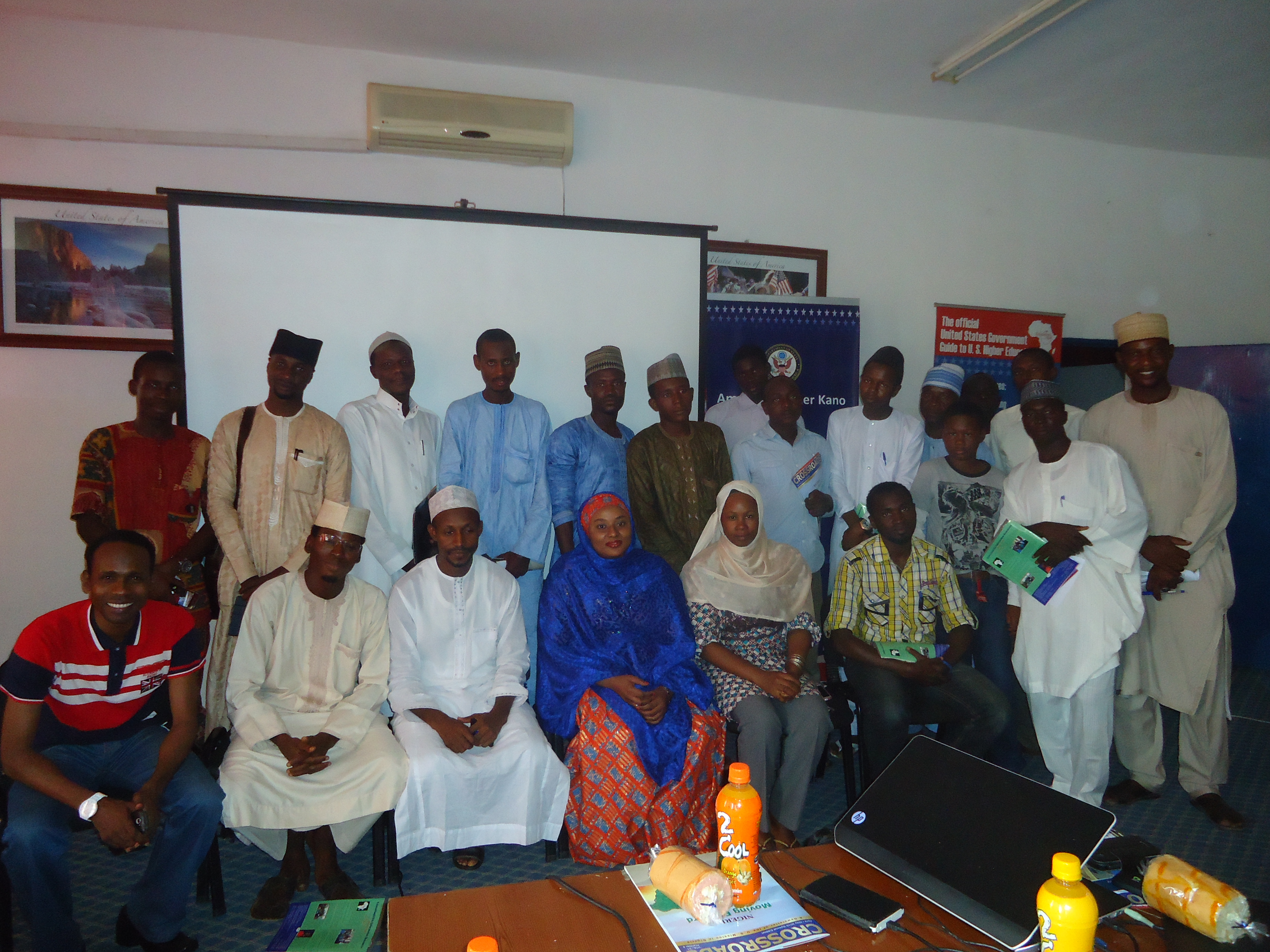By Bilkisu Ado Zango
World Population Day held on the 11th of July yearly was celebrated in Kano State at the American Corner Kano Office on Thursday 30th of July 2015. It was a colourful event graced by researchers, geographers, NGOs/ CSOS among others.
The program featured a lead paper presentation by Bilkisu Ado Zango Advocacy Coordinator E4A who explained that the day is an international level awareness campaign being celebrated all over the world to call people in addressing the challenges of population and how to harness it best. It is celebrated to protect and empower youths of both gender like girls and boys, offer detail knowledge about sexuality, delay marriages till when they are matured to understand their responsibilities, educate youths to avoid unwanted pregnancies by using reasonable and youth friendly measures, educate people to remove the gender stereotypes from society and educate them about the pregnancy related illnesses to raise the public awareness about dangers of early childbirth adding that the theme for 2015 celebration is “Vulnerable Populations in Emergencies”
The presentation also dwelt on facts and figures that was an eye opener for participants including
- More than half of global population growth between now and 2050 is expected to occur in Africa. Half of Africa’s population is age 17 or less, and the active population age 15–64 will triple between 2005 and 2060. By 2050, one in every three births will be African, and almost one in three children under the age of 18 will also be African.
- In 64 of 105 developing countries, population has grown faster than food supplies. Over cultivation, largely due to population pressures, has degraded some 2 billion hectares of arable land, an area the size of Canada and the United States.
- Only 28% of married women of childbearing age are using contraceptives, compared with the global average of 62%.
- Currently Nigeria is facing an insufficient amount of funds annually allocated to health sector which is below 10% of the country’s annual budget over the last 8 years?
- The 2013 National Demographic Health Survey (NDHS) had scored Nigeria poorly in many health indicators. Our Maternal Mortality Ration is put at 576 maternal deaths per 100,000 live births which weren’t significantly different from the ratio reported in the 2008 NDHS of 545/100,000.
- Nigeria is one of the 10 worst places in which to be a mother, and has the second highest number of newborn deaths worldwide.
The presentation also enlightened participants on MamaYe campaign which is a campaign for Africa’s mothers and babies and a call to take action to ensure their survival.
Bilkisu Zango’s presentation also suggested that Governments and policy makers need to take immediate steps toward implementing sustainable development which include using energy more efficiently; managing cities better; phasing out subsidies that encourage waste; managing water resources and protecting freshwater sources; harvesting forest products rather than destroying forests; preserving arable land and increasing food production, a second Green Revolution; managing coastal zones and ocean fisheries; protecting biodiversity hotspots; and adopting a climate change convention among nations, increase food production, provide employment opportunities, the world needs to live off its “ecological interest” rather than using up its “ecological capital abilizing population through good quality family planning services would provide opportunities for women and families to raise their living standards.
Fiona Lovett a freelance development worker, working on empowering and counselling the less privileged cited examples of a lot of countries whose population are in crisis. People in many countries come to Africa a continent blessed with human and natural resources but however indicated that there is a deficit model that keeps repeating itself in Africa. She then asked the question who is fit to advice Africa?
Malan Nura Mudi who is the American Corner Kano Office Coordinator rounded off the meeting by appreciating the presentation and participants indicated that the doors of American Corner are always open to new ideas and support developmental issues in the country as a whole adding that we have all the resources to make things happen.


